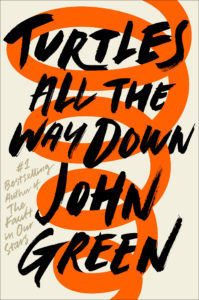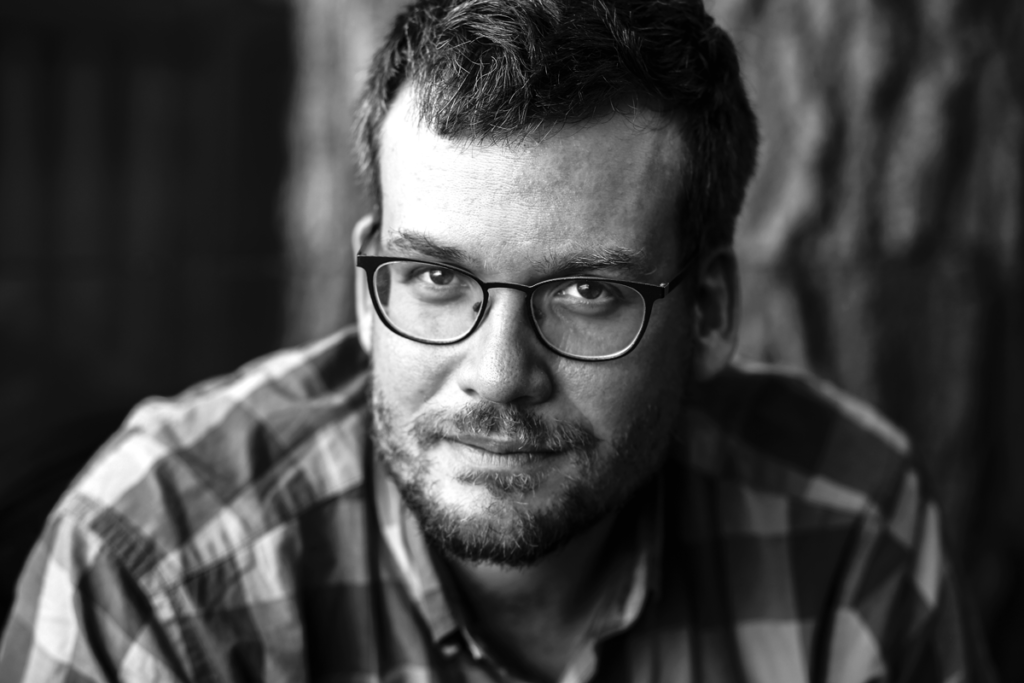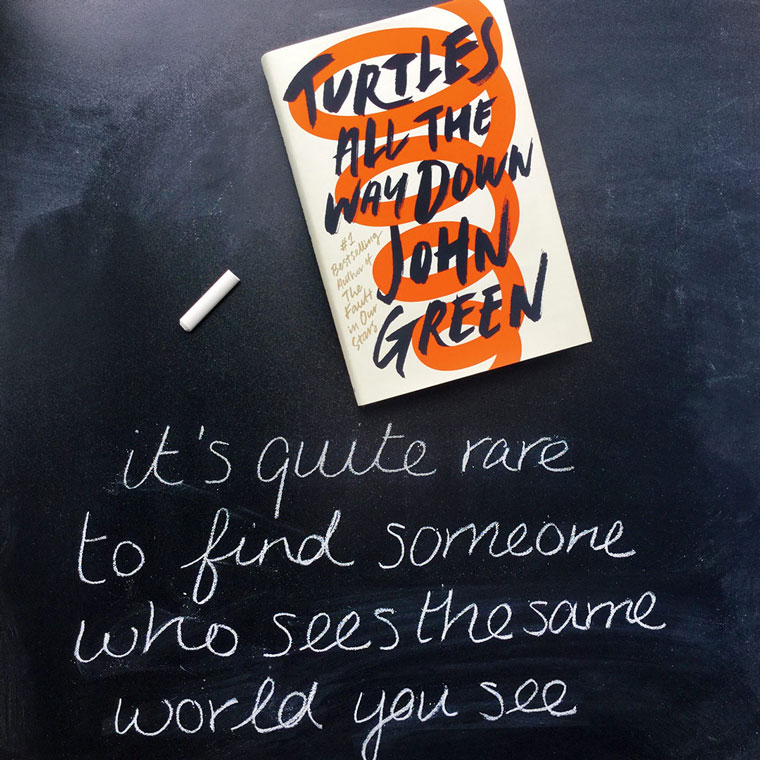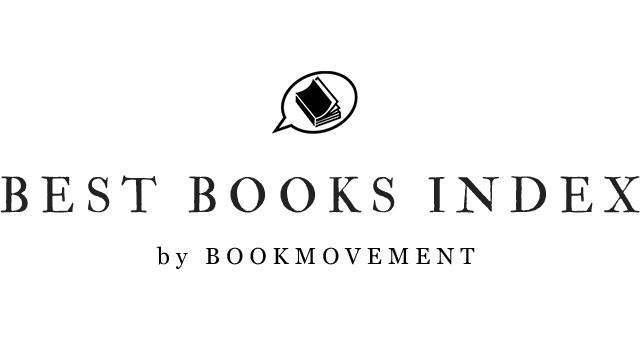Praise
 “Wrenching and revelatory,” #1 bestseller Turtles All the Way Down is a widely acclaimed best book of the year!
“Wrenching and revelatory,” #1 bestseller Turtles All the Way Down is a widely acclaimed best book of the year!
A New York Times Notable Book •A New York Times Critics’ Top Book of the Year •An NPR Best Book of the Year •
A TIME Best Book of the Year •A Wall Street Journal Best Book of the Year •A Boston Globe Best Book of the Year •
An Entertainment Weekly Best Book of the Year •A Seventeen Best Book of the Year •A Southern Living Best Book of the Year •A Publishers Weekly Best Book of the Year •A Booklist Editors’ Choice Selection •A BookPage Best Book of the Year •
An SLJ Best Book of the Year •An A.V. Club Best Book of the Year •A Bustle Best Book of the Year •A BuzzFeed Best Book of the Year •A Pop Sugar Best Book of the Year •A Vulture Best Book of the Year
About the Book
Sixteen-year-old Aza never intended to pursue the mystery of fugitive billionaire Russell Pickett, but there’s a hundred-thousand-dollar reward at stake and her Best and Most Fearless Friend, Daisy, is eager to investigate. So together, they navigate the short distance and broad divides that separate them from Russell Pickett’s son, Davis.
Aza is trying. She is trying to be a good daughter, a good friend, a good student, and maybe even a good detective, while also living within the ever-tightening spiral of her own thoughts.
In his long-awaited return, John Green, the acclaimed, award-winning author of Looking for Alaska and The Fault in Our Stars, shares Aza’s story with shattering, unflinching clarity in this brilliant novel of love, resilience, and the power of lifelong friendship.
8 Questions for John Green
by M.J. Rose

Q: Turtles All the Way Down vividly conveys the experience of being inside Aza’s head—even for those who do not personally deal with OCD and anxiety. What was it like bringing that experience to the page?
A: It was not hard for me to write about Aza’s thought spirals. The hard part was balancing it well enough to figure out how to get the reader to go on that journey with me. I knew that it wasn’t always going to be a fun journey, but I wanted it to feel like a rewarding reading experience.
So often we can approach this through metaphor and by saying what it’s like. You always lose something in that process. You lose the immediacy of it, the true terror of it. If you can find a way to give it direct enough form people feel not what it’s like, but an idea of what it is, I think it helps people understand how scary and destabilizing it is.

Q: You’ve been very open about your own anxiety and obsessive-compulsive disorder and have been an advocate for those with mental illness. What were the challenges of crafting a protagonist with a disorder similar to yours?
A: I had to write with enough distance from myself to make it OK, to make it feel safe. And so Aza has somewhat different foci of her obsessive concerns and the behaviors she uses to manage them. It was really hard, especially at first, to write about this thing that’s been such a big part of my life. But in another way, it was really empowering because I felt like if I could give it form or expression I could look at it and I could talk about it directly rather than being scared of it. And one of the main things I wanted to do in the book was to get at how isolating it can be to live with mental illness and also how difficult it can be for the people who are around you because you’re so isolated.
Q: Throughout the book, you emphasize the idea that there’s no magical cure for mental illness. Why was it important to you to convey that message?
A: We really like stories that involve conquering obstacles and involve victory over adversity. And I love those stories too. It’s just that hasn’t been my story with mental illness and I didn’t really want it to be Aza’s. For me, it’s not something I expect to defeat in my life. It’s not like a battle I expect to win. It’s something I expect to live with and still have a fulfilling life.
Q: How does this book fit into the current conversation about mental health?
A: I do think some progress has been made in destigmatizing mental illness, but there’s still a lot. I’m not a psychologist, and I’m definitely not an expert, but one of the problems with the stigmatization is that it compounds the isolation. And I really hope we can keep breaking that down because I remember how alone I felt in it in high school and it was a big part of what made it so difficult to bear.
Q: Aza shares a last name with Sherlock Holmes. Turtles All the Way Down begins with a mystery—the disappearance of a famous billionaire. Were you inspired by the famous detective?
A: I loved Sherlock Holmes growing up (and still do). But as a person who struggles with obsessiveness, I find it odd that Sherlock’s obsessiveness is often linked to his powers of observation. That may be true to some people’s experiences, but in my case, obsessiveness makes me a terrible detective, because when I’m unwell I struggle to apprehend anything about the world outside my self. So I wanted to write a mystery where the detective’s brain disorder is distinctly unhelpful— not just preventing her from solving the mystery, but also hijacking the plot of the story itself.
Q: What inspired you to use the “turtles all the way down” story as a metaphor for Aza’s experience?
A: I love that story. When I first heard it I was a college student. I thought that it was about how stupid superstition is and how science is right and everyone else is wrong. And now I realize—or I think now—that that’s not the point of the story at all. The point of the story is that the scientist is right, but the old woman saying that the world rests on a turtles all the way down situation, she’s also right. They’re both right because obviously the world is a sphere, but the world is also the stories we tell about it. The stories we tell about it matter. They shape the actual world and they shape our actual lives. So that is very helpful to me in thinking about why I like writing and reading. But it also is very helpful to me in reminding me that I do have some say in framing my own experience. Even though I may go for long periods of time where I don’t have control over my thoughts and that is scary and destabilizing for my sense of self, I do have some say in the story of my life.
Q: Aza and Daisy have a great female friendship. You deeply explore the love of self and the love between friends and family in the novel. Why is this important?
A: I wanted to write about all the different kinds of love that can sustain and support you. Aza is concerned with questions of self and how she can establish a coherent sense of self when she is so often unable to choose her thoughts, and I think one of the ways one learns to imagine one’s self as a singular noun is through loving and being loved. I wanted to explore how that happens — through romantic love, but also through other loves. Romantic love is really important for a lot of people, but it’s not the only kind of love that matters. When I was in high school, it was the love of my friends that got me through.
Q: You dedicate this book to your children. How has being a parent affected your writing?
A: Well, it has certainly made me more interested in parents as characters. I used to get rid of parents as quickly as possible in my books, and now I’m like, “Hold on a second. Maybe your mom has a point here!”
Win John Green’s TURTLES ALL THE WAY DOWN for your Book Cub
About John Green
 John Green is the award-winning, #1 bestselling author of Looking for Alaska, An Abundance of Katherines, Paper Towns, Will Grayson, Will Grayson (with David Levithan), and The Fault in Our Stars. His many accolades include the Printz Medal, a Printz Honor, and the Edgar Award. John has twice been a finalist for the LA Times Book Prize and was selected by TIME magazine as one of the 100 Most Influential People in the World. With his brother, Hank, John is one half of the Vlogbrothers and co-created the online educational series CrashCourse. You can join the millions who follow him on Twitter and Instagram or visit him online at johngreenbooks.com. John lives with his family in Indianapolis, Indiana.
John Green is the award-winning, #1 bestselling author of Looking for Alaska, An Abundance of Katherines, Paper Towns, Will Grayson, Will Grayson (with David Levithan), and The Fault in Our Stars. His many accolades include the Printz Medal, a Printz Honor, and the Edgar Award. John has twice been a finalist for the LA Times Book Prize and was selected by TIME magazine as one of the 100 Most Influential People in the World. With his brother, Hank, John is one half of the Vlogbrothers and co-created the online educational series CrashCourse. You can join the millions who follow him on Twitter and Instagram or visit him online at johngreenbooks.com. John lives with his family in Indianapolis, Indiana.
About M.J. Rose
 M.J. Rose is a NYT bestselling author of 16 novels, founder of AuthorBuzz.com & 1001DarkNights.com. Rose’s work has appeared in many magazines including Oprah Magazine and she has been featured in the New York Times, Newsweek, WSJ, Time, USA Today and on the Today Show, and NPR radio.
M.J. Rose is a NYT bestselling author of 16 novels, founder of AuthorBuzz.com & 1001DarkNights.com. Rose’s work has appeared in many magazines including Oprah Magazine and she has been featured in the New York Times, Newsweek, WSJ, Time, USA Today and on the Today Show, and NPR radio.

Leave a Reply